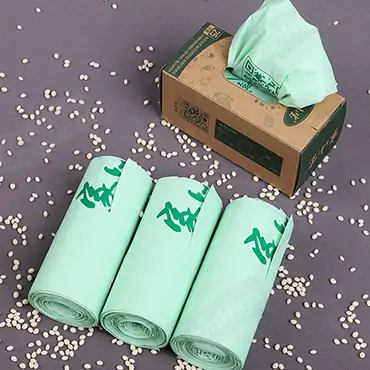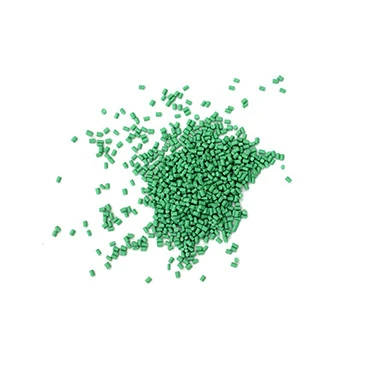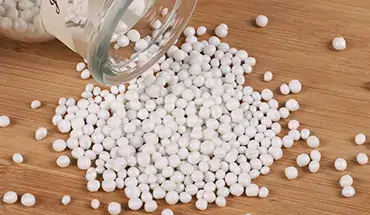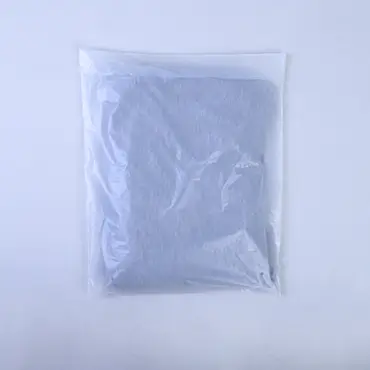Introduction
In the past, maybe most people used traditional garbage bags to dispose of kitchen waste and household waste. However, as plastic pollution becomes increasingly serious, compostable trash bags have become a new trend. If you would like to pursue sustainable development and a green lifestyle, compostable trash bags will be a wonderful alternative to traditional garbage bags.
You may have some questions about what compostable trash bags are, whether they are biodegradable, how to store them, etc. This guide will give you a comprehensive understanding of compostable trash bags and help you make an informed choice.
What are Compostable Trash Bags Made of?
Compostable trash bags are made from PLA, PBAT and corn starch. PLA and PBAT are bio-based materials that can be decomposed into carbon dioxide and water. So they will be harmless to the natural environment and human bodies.
PLA (polylactic acid) is made from starch-containing agricultural products such as corn, wheat, and beets, which are fermented to produce lactic acid, and then polycondensed and melt-spun. Starch extracted from some plants such as cassava can also be used for producing PLA. The starch is decomposed by enzymes to generate glucose and then fermented by lactic acid bacteria to become lactic acid. Finally, it will be chemically synthesized to become high-purity polylactic acid.
PLA (polylactic acid) is widely used in many fields due to its great biodegradability and renewability. It can be used for the production of compostable bags, take-out containers, non-woven fabrics, medical supplies, textile fibers, 3D printing materials, automotive accessories, biodegradable plastic products and building materials.
With excellent biodegradability, PBAT can be completely decomposed into carbon dioxide and water by microorganisms (such as bacteria, fungi and algae) under specific natural conditions.
Are Compostable Trash Bags Biodegradable?
Made from biodegradable resins derived from PLA, corn starch, etc., compostable garbage bags are biodegradable. Under compost conditions, there are a large number of microorganisms, including bacteria, molds, etc. These microorganisms can regard the organic matter in the compostable bags as a food source, and decompose it into carbon dioxide, water and other harmless substances through ingestion, digestion and metabolism. This process is the core mechanism of bio-degradation.

Where to Buy Compostable Trash Bags?
Amazon: As a well-known e-commerce platform in the world, Amazon has attracted a wide range of consumers. You can search for “compostable trash bags” or related keywords on Amazon to find a variety of compostable garbage bags.
Official website: Some well-known manufacturers specializing in the production of compostable bags, such as ShinHigh, may have their own official website, and you can buy compostable trash bags directly on it. The manufacturer offers customization and free samples. These well-known brands usually have higher standards for the quality of their products, so you can buy them with more confidence.
How to Dispose of A Compostable Garbage Bag?
First, put the discarded compostable garbage bags into the compost bin and mix them with other waste (such as kitchen waste, plant branches, leaves, etc.).
Second, maintain certain humidity and ventilation to promote the growth of microorganisms and the decomposition of organic matter.
Third, during the composting process, turn the compost material regularly to accelerate the decomposition.
How Long do Compostable Trash Bags Last?
If the compostable garbage bags are stored in a dry, cool and ventilated environment, they will usually be preserved for a long time, generally up to one year or more.
How to Store Compostable Waste Bags?
Since compostable garbage bags are made from biodegradable raw materials, their shelf life is easily affected by temperature, humidity, and light.
-
Avoid direct sunlight
The ultraviolet rays from the sun will promote the degradation rate of compostable bags, so we shall place these bags in a shade to avoid direct sunlight when storing them.
-
Maintain appropriate temperature
A high-temperature storage environment will accelerate the decomposition of biodegradable bags, while low temperatures may cause plastic bags to become brittle. Therefore, the temperature should be controlled appropriately such as normal temperature or slightly lower temperature.
-
Keep the storage dry
A humid storage may promote the reproduction of microorganisms, and then cause compostable plastic bags to get damp and moldy, which in turn affects their use effect. Therefore, when storing these eco-friendly bags, please ensure that the storage environment is dry.
Final Thoughts
Compostable trash bags offer an approach to reducing plastic pollution and environmental impact. By choosing these bags, you can not only dispose of household waste efficiently but also make home composting. At the same time, by fulfilling the social responsibility of protecting the environment, enterprises can improve brand awareness and attract more potential customers.






